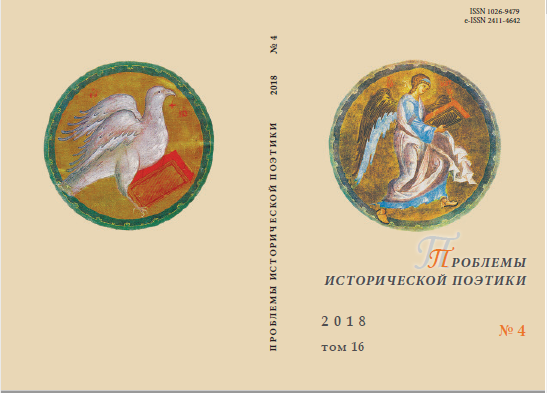«Огорченные люди» в творчестве Н. В. Гоголя
“Grived People” in the Works of N. V. Gogol
Author(s): Igor VinogradovSubject(s): Comparative Study of Literature, Russian Literature, Theory of Literature
Published by: Петрозаводский государственный университет
Keywords: N. V. Gogol; conservatism; liberalism; typology of the hero; “superfluous people”; “grived people”; polemic; parody;
Summary/Abstract: Among the “cross-cutting” and “core” themes of Gogol’s creative work, which for a long time did not attract attention, there is the question about the attitude of the writer to “opposition”, anti-government trends. This theme is a key one for a number of fiction and publicistic writings of N. V. Gogol. For the first time, Gogol’s typology of the “distressed man” as a literary contemporary of the “superfluous people” such as Onegin and Pechorin, the “new people” for example, N. G. Chernyshevsky, the “underground man” F. M. Dostoevsky and others is studied in the article. Gogol’s views on the balance between liberalism and conservatism are analyzed, in particular, the “paradox” that has been in the field of invariable attention of the writer is considered, according to which a hypocritical conservatism always contains the origins of liberalism, while the “liberals” accused by pseudo-conservatives sometimes in fact are bearers of conservatory values. A detailed account is given concerning the autobiographical character of certain motifs of Gogol’s works related to the theme of state service. The authorship of the memoirs of an unknown person about Gogol’s stay in Mannheim in 1844 is established. The authorship of the memoirs of an unknown person about Gogol’s stay in Mannheim in 1844 is established. The memoir note belongs to Grigory Mikhailovich Tolstoy (1808–1871), a rich Simbirsky and Kazan landowner, acquainted with Karl Marx. Being an extraordinary, well-educated representative of a prominent noble family, a person of the “Onegin” type, keen on gypsy songs, a theater-goer, a liberal, a player and a hunter Tolstoy was famous for being unreliable and, as one might judge, “exceptionally easy in reasoning”, so that he could be of help to Gogol in the completing his gallery of “dead souls”. The episode from Gogol’s biography is examined on a broad cultural and historical background.
Journal: Проблемы исторической поэтики
- Issue Year: 16/2018
- Issue No: 4
- Page Range: 29-114
- Page Count: 86
- Language: Russian

